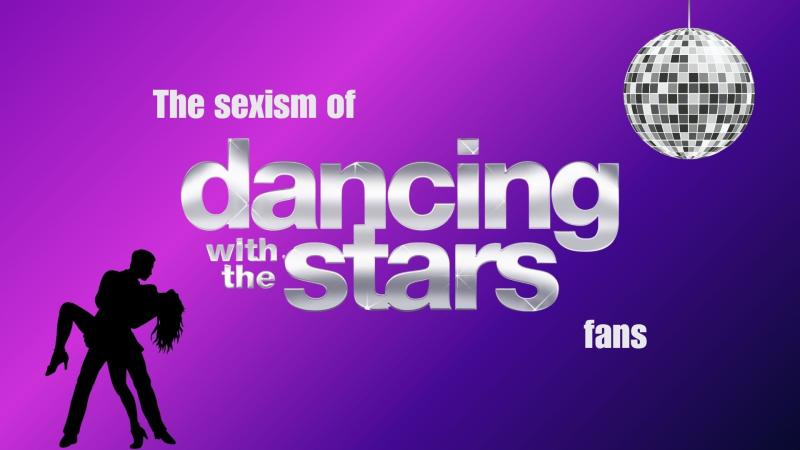
The sexism of “Dancing With the Stars” fans
“Dancing With the Stars (DWTS)” has only awarded one Black woman with the Len Goodman Mirrorball Trophy, actress Amber Riley in season 17, despite being on for almost 20 years.
As the most recent season 33 finale aired on Nov. 26, another Black female star was robbed of victory when fans voted for “The Bachelor” star Joey Graziadei to become the latest winner over actress Chandler Kinney, who got third.
This is the third time this has happened in 10 years, after Zendaya took second in season 16 and Normani took third in season 24.
In all three of these seasons, Kinney, Normani and Zendaya consistently scored high (often at the top of the leaderboard) throughout their runs and were loved by the judges, but still weren’t awarded the top prize due to a lack of fan votes.
Kinney placing as low as third after being projected as the winner is just the latest example of “DWTS” viewers’ sexism.
“DWTS” fans tend to treat the women involved with the show differently than the men, often harsher and more negatively.
This was seen earlier in season 33 with the fan reaction to the casting of con artist Anna Sorokin, also known as Anna Delvey, as a star.
Year after year, “DWTS” makes casting decisions that are controversial, with stars often being hired to sell the story of a comeback or display a new public image.
Examples of these contentious casting choices include former White House press secretary Sean Spicer in season 28 after his resignation from the role, Carole Baskin in season 29 following the success of “Tiger King” on Netflix and former NFL running back Adrian Peterson, who was indicted on charges of reckless or negligent injury to his 4-year-old son, in season 32.
Most of the time, the scandalous stars face backlash from the fans and are quickly voted off the show. This is not always the case, however, and the fan reaction to controversial female stars versus male stars often differs.
While many involved with “DWTS” were upset at Spicer’s casting, with former host Tom Bergeon being fired over his comments against the choice, Spicer still made it until week nine of the season due to being saved by fan votes.
Peterson’s episode packages often featured his newborn baby and depicted Peterson as a family man who was doing the show for his kids. Viewers would have no idea of his tumultuous past without looking into it themselves. Peterson made it to episode 4 of his season.
Baskin and Sorokin did not receive the same grace as their male counterparts. Baskin was eliminated second in her season and Sorokin did not survive her first episode’s elimination.
All of these stars have made mistakes and should be held accountable for their wrongdoings. They also all likely did “DWTS” to help fix their public image, which Peterson arguably succeeded at, opening themselves up to public scrutiny. Their faults are not equal and should not be forgotten, however, it is clear to see the difference in how fans treat female stars who are controversial compared to those who are men when you look at how long their runs on the show lasted.
Female stars are not the only ones who deal with the sexism of “DWTS” viewers. Fans of the show also hold the only female judge, Carrie Ann Inaba, to much harsher standards than the male judges, Derek Hough and Bruno Tonioli.
Inaba and Tonioli have served on the judges’ panel since the first episode of “DWTS,” while former pro Hough joined the panel in season 31 in preparation for the late Len Goodman’s departure from the show.
Inaba, who has an extensive background in dance and choreography, plays the role of the “technical” judge on “DWTS” and is known for her infamous “lift rule,” where she deducts points for couples who improperly lift their feet off the ground in ballroom and Latin dances when it is not allowed.
Tonioli’s eccentricities allow him to take on the role of the “fun” judge, while Hough fills in Goodman’s stricter shoes as a former pro who is familiar with the inner workings of performing on the show.
Despite all three judges being incredibly qualified to judge ballroom dance, in almost every single episode, Inaba is booed by the live audience and ridiculed online for her scoring and commentary, while Hough and Tonioli rarely receive the same treatment for their critiques.
Accused of being too harsh and showing favoritism, Inaba has faced backlash in the ballroom and online from fans who want her to leave the show.
When Hough or Tonioli give hard critiques, they might receive a boo or two in the ballroom, but are certainly not faced with the same vitriol from fans as Inaba is.
It’s hard not to see sexism in viewership when the only female judge, who has been there as long as Tonioli and shares similar levels of experience and expertise in dance as him, is hated as vehemently as she is, when many laud Tonioli.
As some fans celebrate Graziadei’s season 33 win, others think of what could’ve been and reflect on another year of women being mistreated for simply being involved with “DWTS.”
Next season, I hope fans of “DWTS” approach female stars and Inaba with more tact, courtesy and respect, breaking the current cycle of sexism in the fanbase.

